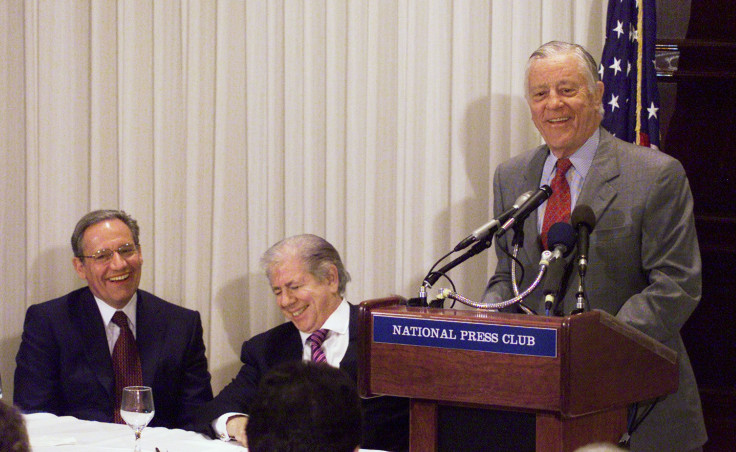Watergate's Carl Bernstein Names 21 GOP Senators Who 'Privately' Slam Trump
KEY POINTS
- Bernstein expanded his list from ‘15 or so’ to 21 Republican senators
- Republicans are complicit in undermining US democracy, he says
- Trump as recently as Sunday maintains he will emerge victorious
Watergate reporter Carl Bernstein has publicly identified almost two dozen Republican senators who have privately criticized President Donald Trump while remaining largely silent about his denial of the latest election results.
Appearing on CNN last week, Bernstein, who was Bob Woodward’s counterpart in reporting on the Nixon-era political scandal for The Washington Post, targeted 21 GOP senators for their failure to call out Trump's refusal to concede to President-elect Joe Biden while challenging the outcome of the election in courts.
Only a handful of Republicans, such as Utah’s Sen. Mitt Romney, have recognized Biden’s victory in the presidential election and spoken out against Trump’s efforts to litigate the results.
On CNN, Bernstein said there were “15 or so” Republicans who “privately” held negative views of the president but have so far stayed silent on Trump’s extraordinary efforts to turn the election.
On Twitter, Bernstein on Sunday expanded his list to 21.
The 21 GOP Senators who have privately expressed their disdain for Trump are: Portman, Alexander, Sasse, Blunt, Collins, Murkowski, Cornyn, Thune, Romney, Braun, Young, Tim Scott, Rick Scott, Rubio, Grassley, Burr, Toomey, McSally, Moran, Roberts, Shelby. (2/3)
— Carl Bernstein (@carlbernstein) November 23, 2020
In addition to Romney, they include Rob Portman of Ohio, Lamar Alexander of Tennessee, Ben Sasse of Nebraska, Roy Blunt of Missouri, Susan Colins of Maine, Lisa Murkowski of Alaska, John Cornyn of Texas, John Thune of South Dakota, Mike Braun and Todd Young of Indiana, Tim Scott of South Carolina, Rick Scott and Marco Rubio of Florida, Pat Toomey of Pennsylvania, Martha McSally of Arizona, Jerry Moran of Kansas, Charles Roberts of Kansas and Richard Shelby of Alabama.
“With few exceptions” he continued in his thread, their silence “has helped enable Trump’s most grievous conduct—including undermining and discrediting the US the electoral system.”
Portman said in a Nov. 11 statement that Trump has the right to go to court to resolve questions about any voting irregularities, but is obligated to back his claims with evidence.
Alexander said last week that dispute resolution was common in U.S. elections, most notably in the Supreme Court decision that decided the contest between Al Gore and George W. Bush in the 2000 election.
“If there is any chance whatsoever that Joe Biden will be the next president, and it looks like he has a very good chance, the Trump Administration should provide the Biden team with all transition materials, resources, and meetings necessary to ensure a smooth transition so that both sides are ready on day one,” Alexander said.
Apart from Romney, that’s about as close as it’s came to a direct call for Trump to facilitate the transition process from a sitting Republican. Trump as recently as Sunday night maintained he secured a second term in office.
“In certain swing states, there were more votes than people who voted, and in big numbers. Does that not really matter? Stopping Poll Watchers, voting for unsuspecting people, fake ballots and so much more,” he said in a tweet flagged as misleading. “Such egregious conduct. We will win!”
Nearly all of Trump’s legal challenges have failed in court. In a scathing opinion during the weekend, Pennsylvania Judge Matthew Brann said Trump’s legal team had presented "strained legal arguments without merit and speculative accusations."
"In the United States of America, this cannot justify the disenfranchisement of a single voter, let alone all the voters of its sixth most populated state," Brann wrote. "Our people, laws, and institutions demand more."
Several states have yet to certify the results of the election. State electors cast ballots in the Electoral College on Dec. 14. By all measures, Biden won the state-by-state Electoral College votes that ultimately decide who takes the White House by 306 to 232.

© Copyright IBTimes 2024. All rights reserved.





















